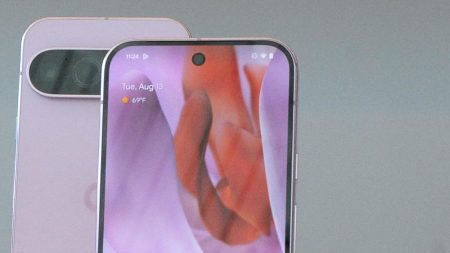Aditya Malik, Founder and CEO of Valuematrix.ai. Nasscom Deeptech and CII Mentor associated with many startups in the AI and SaaS space.
The clamor is only getting louder. Be it quietly quitting, the great resignation, loud quitting, or, more recently, “naked resignations.” Why are all these people stepping out and away from workplace notions that have been cherished for centuries: perseverance, hard work, loyalty, financial stability, career progression and professional networking? The answer is self-preservation.
Whether it is coasting from nine to five, seeking work-life balance after the Covid-19 pandemic-triggered existential crisis, rejecting a toxic work environment or protesting against the relentless corporate hustle, they are all embracing the lightness of freedom. They like the feeling of being in charge of their lives.
Quitting Without A Job Because YOLO
In China, naked resignations—the curious phenomenon of quitting a job without finding another—are taking on various hues, attracting worldwide attention:
• Employees call out employers for setting unrealistic targets and overworking them under the pretext of total dedication.
• Hashtag campaigns against the wolf culture in companies and workers as beasts of burden (“oxen and horses”) trend on social media.
• How-to advisories on life without salaries abound, with a focus on revenge savings (opposite to revenge spending soon after the pandemic), alternate ways to earn and the “you only live once” (YOLO) credo.
In the rest of the world, workers who are not actively engaged in the workplace echo the same sentiments, giving rise to similar trends:
- Resenteeism: Resentment+Absenteeism—feeling disengaged and angry, not going anywhere yet.
- Reshuffling: Resigning to explore other industries.
- Reinventing: Opting for entrepreneurship, freelance roles, temporary gigs, part-time work.
- Reassessing: Dropping out of the workforce to heal or to provide care to family.
Spotlight On Gen Z Resignations
While all generations have witnessed a fair share of churn, the exit of Generation Z employees (born in the mid-’90s to early 2000s) has touched a raw nerve. They are sought after and hired, but they are simply not interested in linear pathways of progress and are more than happy to “drift freely” across “squiggly” careers that Millennials, Boomers and Gen-Xers frown upon as industry-hopping.
There are 2 billion people who fall into the Gen Z (Zoomers) category. They are the first global generation connected to people worldwide and will form 27% of the workforce by 2025. Forward-looking enterprises will want to hire and retain these digital natives for the unique perspectives they bring—having lived through a pandemic, the lockdown, mass layoffs, disruptive technologies such as AI and blockchain, geopolitical turmoil, and climate change imperatives.
According to a recent report from Snapchat and Boston Consulting Group, the Gen Z population in India accounts for 377 million, more than the U.S. population. One of every four Gen Zer is part of the workforce, and by 2025, every second Zoomer will be earning.
I see a tremendous opportunity here to redesign our work culture to leverage fresh young talent by providing flexibility, authenticity, and a strong connection with the organization’s vision and mission.
Enterprises are already ushering in a flat, non-hierarchical workforce structure replete with innovative HR programs that go beyond Friday fun evenings!
• Work buddies: New hires pair up with another employee, often across generations, to build relations, get guidance, understand company culture and deepen engagement.
• Peer mentoring: Same-age or identical career-stage professionals meet up to share knowledge, experience and skills and provide feedback.
• Reverse mentoring: Juniors teach seniors new technologies, tools and skills.
• Cross-generational team-building: Teams come together to share their work styles, communication preferences and problem-solving techniques.
• Shadowing programs: Following a colleague around all day to understand the functions performed daily and develop insights.
Add to this lunch-and-learn sessions, skill-swapping workshops, interest-based affinity groups, career-coaching circles and knowledge cafes, and you have a mix of formal and informal mechanisms to assimilate work culture and develop a strong sense of belonging.
Gen Z Works To Live—It Does Not Live To Work
Beware, belonging does not mean slaving. Make sure you learn the skill of empathetic hiring and retention. Gen Z employees are looking for fulfillment in life. It is enough if a job (preferably a remote one) allows them time to find it.
As they focus more on holistic well-being and continual growth, it is best to give them autonomy and set them up for intrapreneurial success.
The mental health issue of Gen Zers is real across continents. In the UK, the Prince’s Trust NatWest Youth Index 2024 found that:
- One in five Gen Z respondents missed work due to mental health issues.
- 18% felt too overwhelmed to apply for jobs.
- 12% were unable to attend interviews.
- 10% of young people from disadvantaged backgrounds left jobs in the past year due to mental health challenges.
Gen Z hankers after mental well-being, self-care and emotional intelligence. If there is an employee benefit they value, it just may be a gym membership, yoga classes or access to wellness resources.
A retail chain in China has gone a step ahead and offered “unhappy leave” to employees.
While that is considerate, there are other proactive and empathetic measures to handle the mental well-being of the Gen Z workforce.
- Provide mental health counseling, ensuring privacy or anonymity.
- Customized and confidential mental therapy sessions.
- Stress-busting sessions on financial wellness.
- Activities that promote work-life balance like reading, treks and music.
- Harness emotional intelligence to build resilience and problem-solving skills.
Managers may not be equipped to deal with the emotional problems of Gen Z colleagues. They have to be trained to deal with the issue with the right blend of professionalism and empathy, setting boundaries to avoid spillover of emotions into the workspace.
Gen Z Human Intelligence Will Shape Future AI
Remember, the technical acumen of Gen Z engineers will drive innovative approaches to data and predictive analytics in the coming days. They have to adapt and work with AI as professional counterparts, overseeing breakthroughs with their superior human brainpower. Quitting misfit jobs is just an interlude in their pursuit of AI excellence to gift humans a brave new age of passion and leisure, as AI agents do our bidding. Empathy, therefore, is a Gen Z prerogative at the workplace.
Forbes Technology Council is an invitation-only community for world-class CIOs, CTOs and technology executives. Do I qualify?
Read the full article here









